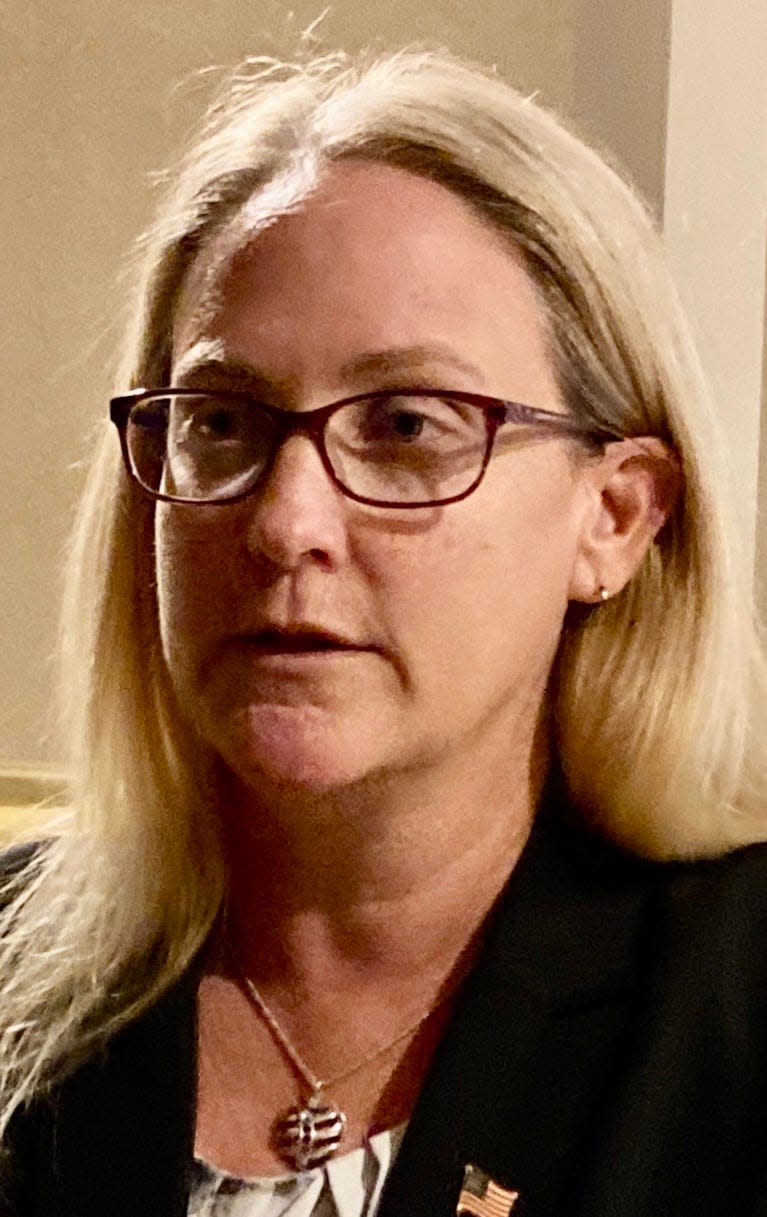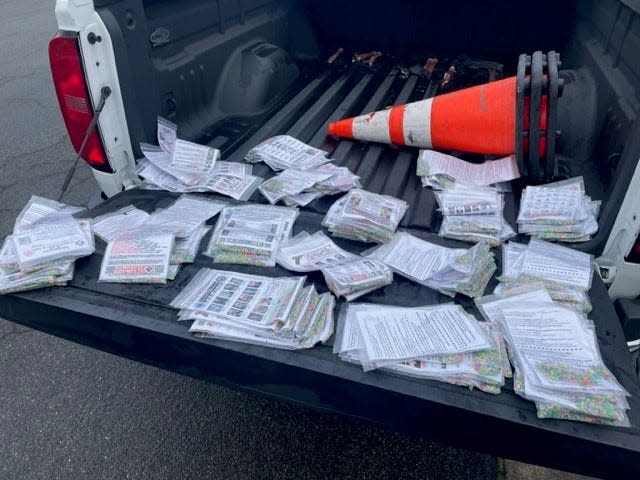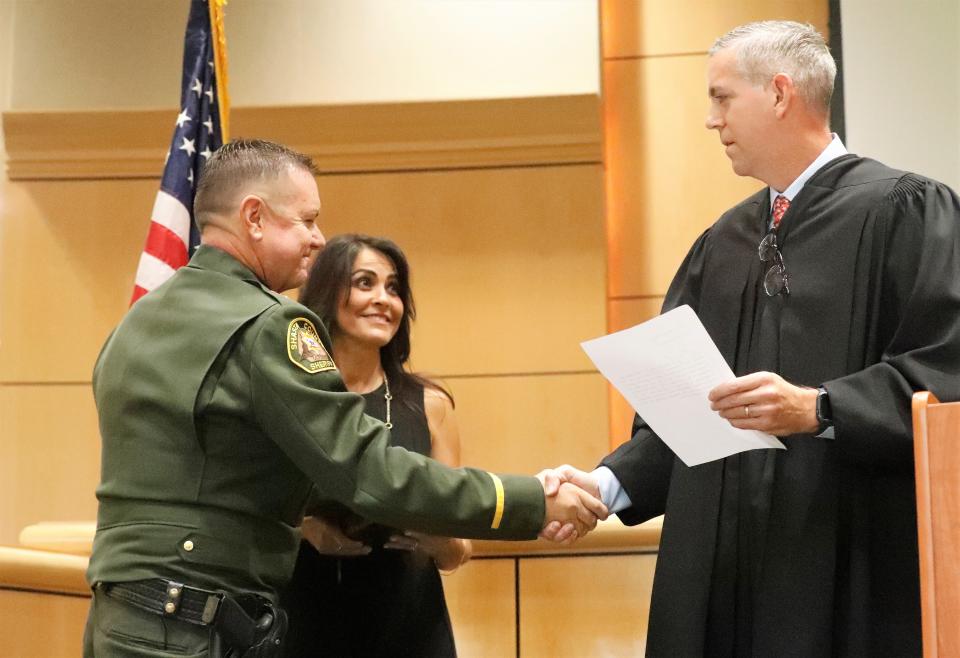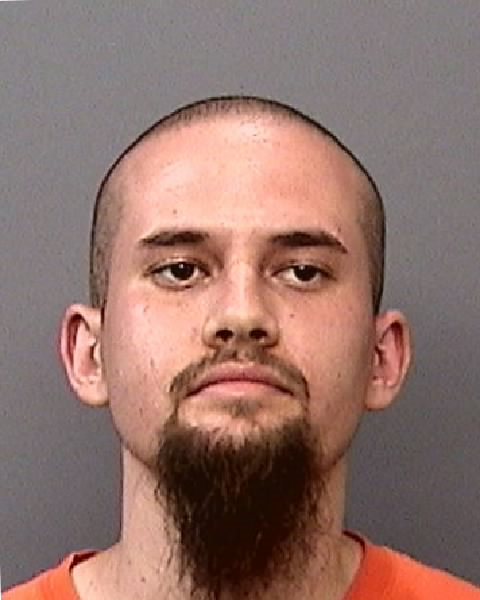Hate crime rates rose in California. How does Shasta County compare?
- Oops!Something went wrong.Please try again later.
Hate crime in California is on the rise, according to an official state tally of reported incidents. But Shasta County law enforcement organizations hope to stop hate crime before it starts by reaching out to community groups to educate them about hate crime.
U.S. Attorney Phillip Talbert, Shasta County District Attorney Stephanie Bridgett, Shasta County Sheriff Michael Johnson and other law enforcement officials met in July with members of the Shasta Equal Justice Coalition, Shasta Interfaith and other organizations. The officials' aim was to explain what constitutes hate crime and where Shasta County stands on the number of cases compared to the state overall.
California Attorney General Rob Bonta issued a recent hate crime report that said hate crimes were up 20.2% statewide in 2022 compared to 2021. "The alarming increases in crimes committed against Black, LGBTQ+ and Jewish people for the second year in a row illustrates the need for our communities to join together… to combat extremism," Bonta said in the report.

In 2022, there were five hate crimes involving six suspects reported in Shasta County. All the incidents took place in Redding, according to the state's report.
How that compares with past years isn't fully known because the county doesn't have a way "to capture those actual statistics without a pretty labored specific effort," in part because the county is changing its record keeping system, Johnson said.
So far, Shasta County seems to have bucked the state trend in 2022. Hate crime-related cases tried by the Shasta County District Attorney’s office last year remained about the same as in prior years, Chief Deputy District Attorney Emily Mees said. Her office took four hate crime cases to trial last year, she said.
Defining hate crime
Johnson said that “Often, people will report what they believe is a hate crime" when the crime actually doesn't meet the legal definition.
Note to readers: We’ve made this story free as an important public service. If you are able, help power local journalism. Subscribe to the Redding Record Searchlight.
For example, on Feb. 10, residents of Redding’s Country Heights subdivision off Buenaventura Boulevard called police to report a hate crime after they found fliers with antisemitic messages printed on them had been left anonymously on their doorsteps.
That didn’t constitute a hate crime, but was a “hate incident,” Redding Police Sgt. Regan Ortega told the Record Searchlight in February: “All of the material that's being distributed is falling under free speech."

To be a hate crime, there needed to have been an act of violence or the threat of violence associated with the flyers, Ortega said.
California’s penal code defines a hate crime as “a criminal act committed, in whole or in part" because of the victim’s real or perceived characteristics: Disability, gender, nationality, race, ethnicity, religion or sexual orientation. The penal code also applies to crimes against people because of their association with someone who has one or more of those characteristics.
Hate crimes "may result in imprisonment or jail time for offenders,” according to a bulletin issued to law enforcement statewide by Bonta on June 26.
More: No crime was committed, so antisemitic flyers aren't a hate crime: Redding police
“Crimes that are truly hate crimes tend to be heinous, violent and result in victims with emotional distress or physical injury. In my experience, these are usually reported without haste and result in intense law enforcement investigation and follow through," Johnson said.
Sheriff clarifies law for community groups, militia
Stopping hate crime starts with making sure law enforcement officers know how to spot it. Johnson said that "deputies receive on-going trainings through webinars, classroom trainings and case law briefings."

As well as reaching out to other community groups, Johnson said he spoke with local militia members after he first became sheriff to make sure they understood the law.
Here's what Johnson said: "My meeting with the militia leadership was very respectful and non-confrontational. I was direct with them and they were with me. I learned about their core values and intent to instill patriotic, basic American principles in their youth and to uphold the Constitution."He continued: "I relayed that our agency was committed to enforcing the laws of this nation and the laws of the State of California. Vigilantism and discrimination of any sort will not be tolerated, nor any other violation of the law."
Hate crimes cases tried in Shasta County
The most public of the four Shasta County hate crime cases tried by the district attorney’s office in 2022 involved a Sacramento man who was found guilty of attempted voluntary manslaughter and assault with a semi-automatic firearm after he shot at two people in Lakehead in 2021, putting one in the hospital with a serious brain injury. Silas Matthew Hesselberg was sentenced to 20 years and four months in prison by a Shasta County Superior Court judge on April 6.
More: Lakehead 'hate crime' shooter found guilty of attempted voluntary manslaughter gets prison
On April 18, 2021, William Travis Barber of Shasta Lake, his family and his friend were on a fishing trip at the Salt Creek Inlet when Hesselberg approached them, shouted a racial slur and shot Barber and his friend, according to an investigative report from the Shasta County Sheriff's Office. Barber was hospitalized and his unnamed friend, a 41-year-old Black man, was treated for his injuries, according to the sheriff's office.The jury's verdict agreed with a hate crime allegation involving Hesselberg's initial target in the shooting, the 41-year-old friend.
Hesselberg "went out of his way" to start a confrontation, and shot the two men, sheriff’s detectives reported.

More: Shasta Lake man recovers after being shot defending friend from hate crime
Three other hate crimes were tried by the district attorney’s office in 2022, according to Mees. In Shasta County, a plea of “no contest” is “the same as a guilty plea,” she said.
On July 23, 2021, a 17-year-old Black woman was driving on Interstate 5 when she and defendant Carlos Zavala had “a road rage incident,” according to the district attorney’s office. “During the altercation" Zavala directed racial slurs at the teen, according to Mees. This case is still open, she said.
On Aug. 6, 2022, Carole Wachtell Nichols “was causing problems at a Chevron gas station and the owner/managers couldn’t get her to leave,” Mees said. Nichols “began swinging a large wooden stick as she walked” toward at least two people, who reported to officers that Nichols made racist comments about one of them, who is of "East Indian" background. She told him he "should ‘go back to your country,’” according to the district attorney’s office. Nichols pleaded no contest and the case is closed, Mees said.
On Jan. 10, 2022, a Black man working as a caretaker for Madeline Manfredonia’s father expressed concerned Manfredonia was having her father sign paperwork that seemed "out of the ordinary,” according to the district attorney’s office. Manfredonia acted angry and “threatening, and called” the caretaker “the N-word multiple times,” Mees said. Manfredonia also smashed the caretaker's truck windows, causing more than $900 in damage, she said. Manfredonia pleaded “no contest” and the case is closed, Mees said.
How to report a hate crime
Talbert said in the community meeting that to report a hate crime, people should make two calls: One to local law enforcement and to the FBI at 800-CALL-FBI, or 800-225-5324.
"The key, however, is that they need to clearly articulate the circumstances as to why they believe it is a hate crime," Johnson said.
Report details and have names of "witnesses, potential evidence and timelines available," Johnson said.
He also recommends that victims and witnesses get legal help.
Jessica Skropanic is a features reporter for the Record Searchlight/USA Today Network. She covers science, arts, social issues and news stories. Follow her on Twitter @RS_JSkropanic and on Facebook. Join Jessica in the Get Out! Nor Cal recreation Facebook group. To support and sustain this work, please subscribe today. Thank you.
This article originally appeared on Redding Record Searchlight: Hate crime in Shasta County: These four recent cases went to trial

